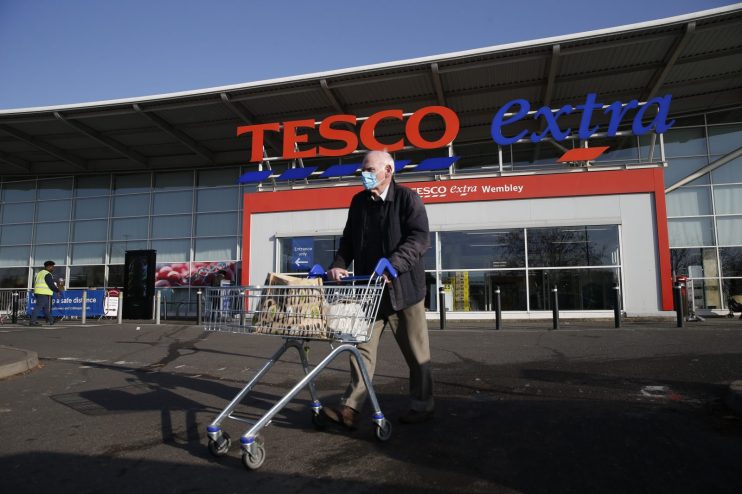Tesco to pay back £585m in emergency support with pandemic risks ‘behind us’

Tesco this morning said that it would pay back £585m of business rates relief it received to protect it from the impact of the coronavirus pandemic.
The supermarket said that paying back the emergency funding was “the right thing to do”, adding that some of the risks from the pandemic were now behind it.
In all, Tesco said that the estimated cost of Covid-19 to the company would be £725m, adding that it was “immensely grateful” for the government’s support.
“In March, the UK faced an unprecedented situation as the pandemic took hold”, it said in a statement.
“For food retailers, the impact was immediate and potentially disastrous: panic buying, severe pressure on supply lines, major safety concerns and the risk of mass absences from work, culminated in a real and immediate risk to the ability of supermarkets to feed the nation.
Before the Open newsletter: Start your day with the City View podcast and key market data
“We are immensely grateful for the financial and policy support provided to us by the governments of the UK. This was a game-changer and allowed us to ensure customers got access to the essentials they needed.”
Despite the lockdowns, Tesco has continued trading throughout the year, with sales rising 6.6 per cent in the first half of 2020/2021.
It said that it would pay back £535m this financial year and then the remaining £50m in the next period.
Tesco chief executive Ken Murphy said: “While business rates relief was a critical support at a time of significant uncertainty, some of the potential risks we faced are now behind us.
“Every decision we’ve taken through the crisis has been guided by our values and a commitment to playing our part. In that same spirit, giving this money back to the public is absolutely the right thing to do by our customers, colleagues and all of our stakeholders.”
AJ Bell investment director Russ Mould said: “The decision by Tesco to pay back business rates relief represents a significant U-turn and will crank up the pressure on its supermarket rivals to follow suit.
“This gesture comes at a fairly sizeable cost – so it can’t be dismissed as meaningless – and it may well be that the boardrooms of its peer group are cursing the move. After all, if they follow suit, unlike Tesco they won’t be able to claim the brownie points for going first.
But analysts at Shore Capital said that the move could set a dangerous precedent, and questioned its impact on investors.
“We absolutely do not believe that this is doing the right thing by all of its stakeholders, notably shareholders, and we sense, as we have already heard a sense of; ‘what an earth are they doing…, will be the main initial emotion.
“Indeed, doing the right thing is a phrase that maybe considered a lot today, as where does it end, particularly if it is demonstrably not doing so for shareholders; who would seem to be a second-class stakeholder for Tesco’s board?”